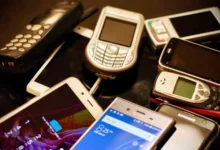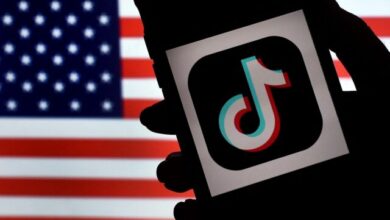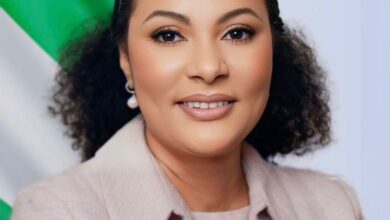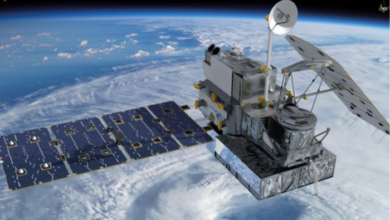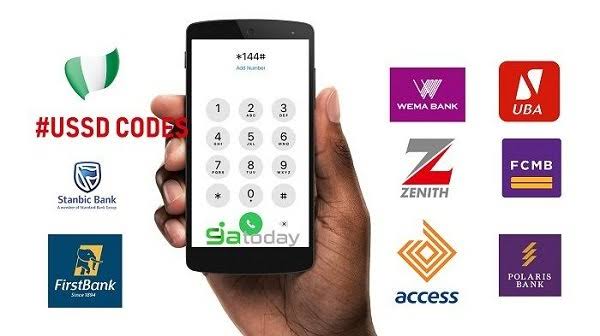
After over five years of bickerings on the debts owed by Money Deposit Banks(DMBs) for Unstructured Supplementary Service Data (USSD) platforms, respite is underway.
USSD is the platform through which bank customers transfer money digitally on their phones without resorting to the internet. USSD banking is an SMS-based mobile banking service, where a USSD shortcode is used to access financial services like transfers, bill payments, airtime among others.
Unstructured Supplementary Service Data (USSD) allows users without a smartphone or data/internet connection to use mobile banking through codes specific to each bank. There is however a 150.18 percent decline in USSD usage for financial transactions as users move to Internet banking.
According to the CBN, the total transaction value with USSD was N2.19 trillion between January and June 2024, a decline of 54.75 percent from N4.84 trillion in the same period of 2023. The volume of transactions fell by 150.18 percent to 252.06 million from 630.6 million.
In 2021 when GSM services turned 20 in Nigeria the then Group Managing Director of Zenith Bank Plc, Mr Ebenezer Onyeagwu, said, “The introduction of USSD changed everything. Without telecoms infrastructure, there is no USSD code.” But this sentiment is not shared by many bank executives including Segun Agbaje, CEO of GTCO, who recently stated, “If you want to charge N20 for the service, go ahead. But collect it yourself. Don’t come to us.”
According to industry sources, the non-payment of this debt, which telcos peg at N250 billion, has led to an investment slowdown in USSD infrastructure. The December 20,2024 joint memo by CBN and NCC seeks to clean up the protracted USSD mess and enforce payment timelines.
While the banks own the accounts,the Mobile Network Operators (MNOS) own the networks. But there have been disagreements on payment terms that have plagued the banking and telecommunications sectors so much that the Central Bank (CBN) and the Nigerian Communications Commission ( NCC) had to intervene several times in the past to see how the matter could be resolved. All that failed until December 20,2024 when a circular was endorsed by both regulators on the way forward.
The Circular signed by Ag Director, Banking Payments System Department at CBN ,Oladimeji Yisa Taiwo and Chizua Whyte, Head, Legal and Regulatory Services at the NCC stated that: the Central Bank of Nigeria (CBN) and the Nigerian Communications Commission (NCC) are deeply concerned that the protracted dispute between Deposit Money Banks (DMBs) and Mobile Network Operators (MNO) over the usage of the MNOs USSD platform for banking services has remained unresolved despite best efforts.
“In view of the foregoing, the CBN and the NCC hereby direct DMBs and MNOs as follows: That sixty per cent 60% of all pre-API invoices must be paid as full and final settlement of such invoices.
In this regard, payment plans (lump sum or installments) must be agreed between a concerned DMB and MNO by January 2, 2025.
“For the avoidance of doubt, where installmental payment is proposed by a DMB, such proposal must be based on equal monthly instalments, and payment must be completed by July 2, 2025 at the latest. That in furtherance of earlier resolutions by the CBN and the NCC, M B s must pay eighty-five per cent (85%) of all outstanding invoices issued after the implementation of Application Programming Interfaces (API) (i.e. February 2022) between the concerned DMB and MNO (i.e. post-API debts) by December 31, 2024.
“Similarly, eighty-five per cent (85%) of all future invoices must be liquidated within one month of service of the invoice. That subject to satisfactory implementation of the directives in Paragraphs 1 and 2 above and in furtherance of the understanding between DMBs and MNOs on transition to End-User Billing (EUB), the NCC will activate the necessary regulatory processes to revert to EUB. Only MNOs and DMBs in full compliance with Paragraphs 1 and 2 above will be allowed to transition to EUB.
“The NCC and the CBN will provide guidance on public enlightenment measures in respect of the transition in due course. That pending completion of the transitional arrangements in Paragraph 3 above, MNOs are to adopt the “10-seconds rule” for USSD invoicing. This means that any USSD session lasting less than ten seconds is not billable.
“DMBs on prepaid billing would also have the opportunity to migrate to EUB subject to conclusion of the regulatory processes stated in Paragraph 3 above. That DMBs and MNOs should immediately discontinue any legal proceedings on the subject matter forthwith.
“The circular advised that “DMBs and MNOs should immediately discontinue any litigation by them or on their behalf on the matter. DMBs and MNOs are directed to ensure full implementation of the Directives contained in this Joint Circular and to note that non-compliance will attract necessary sanctions within the respective regulatory powers of the CBN and the NCC”.
Gbenga Adebayo, an Engineer and Chairman of Association of Licensed Telecommunications Operators of Nigeria (ALTON) confirmed the development saying: “The dispute over Unstructured Supplementary Service Data (USSD) charges between Nigerian banks and telecommunications companies (telcos) has been ongoing since 2019. The disagreement centers on who should bear the costs associated with USSD services used for financial transactions.”
“In October 2019, the issue became public when banks refused to pay for USSD services utilized by their customers, proposing instead that telcos adopt end-user billing. Telcos disagreed, citing potential double billing and regulatory restrictions. By August 2020, the Nigerian Communications Commission (NCC) reported that banks owed telcos approximately ₦17 billion in USSD charges.
“Despite regulatory interventions, the debt continued to accumulate, reaching about ₦42 billion by 2020 and further increasing in subsequent years. “
“As of December 2024, the outstanding USSD debt is estimated at ₦250 billion. The Central Bank of Nigeria (CBN) and the NCC have issued directives for banks and telcos to settle this debt, with specific payment plans and deadlines extending into 2025.”
He explained in summary, that the USSD debt between Nigerian banks and telcos has been outstanding for over five years, originating in 2019 and persisting through to the present day sadly “ On Friday December 27,2024 the Nigerian Communications Commission (NCC) approved the disconnection of Exchange Telecommunications Ltd. from MTN Nigeria network due to the non-settlement of interconnect charges.
The commission made this known in a public notice signed by Reuben Muoka, the Public Affairs Director at NCC, ”The Exchange Telecommunications is a local and international interconnect carrier. The Nigerian Communications Commission hereby notifies the public that approval has been granted for the disconnection of Exchange Telecommunications Ltd. (Exchange) from MTN Nigeria Communications Ltd. (MTN) as a result of non-settlement of interconnect charges,” NCC said.
The commission noted that the Exchange was notified of the application and was given opportunity to comment and state its case. It said that the commission, having examined the application and circumstances surrounding the indebtedness, determined that the Exchange does not have sufficient reason for non-payment of the interconnect charges.
NCC said the disconnection of the Exchange Telecommunications to MTN was in accordance with Section 100 of the Nigerian Communications Act, 2003 and the Guidelines on Procedure for Granting Approval to Disconnect Telecommunications Operators, 2012.
At the expiration of five days from the date of this notice, MTN will discontinue passing voice and data traffic through Exchange and will, thereafter, utilise alternative channels in interconnecting with other network service providers.


